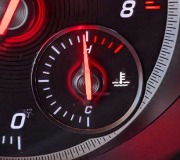Sunday, June 21st, 2015 AT 8:37 PM
What causes valve seats to drop to where it ruins the pistons? Can it just happen or is it because of heads being done wrong or timing belt put wrong, what? It's a 99 mercury tracer. The place we bought the car, the lot said they had just did new valves, timing belt, head gaskets & all & it being my daughter, a single mom & 2 small children, they said it was great & dependable. Any problems bring it back & they'd fix it. Sucking gas & sounding bad, so within a couple wks took it bk. After about 2 wks got it bk. SAID IT WAS WITH THE CRANK SHAFT. BUT NOW RUNNING GOOD. Then ABOUT A MONTH LATER NOISE SOUNDED WORSE THEN BOOM. IT DIED & WOULDN'T CRANK. SOUNDED LIKE MAYBE IT JUMPED TIMING OR TIMING BELT BROKE. HAD IT TOWED BK TO THEM, NOW 4 1/2 MONTHS LATER, THEY SAY IT DID A RARE THING OF VALVES/PISTONS DROPPING, RUINING HEADS, WAS NOT IN GOOD ENOUGH SHAPE TO REBUILD & HAD TO KEEP SEARCHING FOR A DECENT PRICE LOW MILEAGE GOOD 2.0 ENGINE. MECHANIC SAYS ITS SOMETHING THAT HAPPENS BUT IS VERY RARE. SO THEY SAY THEY'LL GO IN HALF SO THAT MY DAUGHTER LOOKING AT PAYING 800.00-1200.00 AREA FOR HER HALF. ANY INFO ON ALL THIS WOULD BE APPRECIATED.


